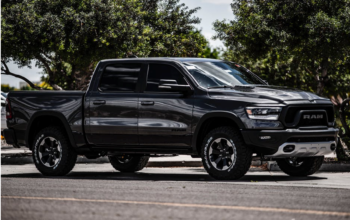In a fiercely competitive auto market, the edge doesn’t come from shiny showrooms or aggressive pricing alone, it comes from people. Automotive dealership training is no longer optional or occasional; it’s the engine behind higher profits, repeat customers, and standout reputations. The dealerships that invest in developing their teams are the ones that stay ahead.
Why Training Is the Make-or-Break Factor
The average car buyer today walks into a dealership after hours of online research. They’ve read reviews, compared prices, and already formed strong opinions. What they want at that point is a human connection, someone who can guide them, not pressure them. This is where training matters most.
Training prepares salespeople not just to know the inventory, but to read a customer’s needs and respond in ways that build trust. That’s a skill that doesn’t come from guessing or “winging it.” It comes from structured coaching, real-world practice, and learning how to pivot when conversations don’t go as planned.
Sales Skills Aren’t Born, They’re Built
It’s a myth that good salespeople are born with a gift. The truth? Even the most naturally charismatic person will fall flat without proper training. Dealership training programs should focus on the full journey, from greeting to close.
This means teaching how to ask better questions, how to actively listen, and how to match a product’s features to the buyer’s lifestyle or concerns. Roleplaying, video reviews, and one-on-one coaching sessions are powerful tools for this. Salespeople who go through consistent training sessions tend to close more deals, handle objections better, and recover from rejections faster.
F&I Training: Where Profits and Compliance Meet
Finance and Insurance (F&I) managers are a critical part of the dealership’s success, and often one of the most misunderstood roles. F&I is where a large portion of a dealership’s profit is made, but it’s also where things can go wrong fast without the right training.
F&I training goes beyond just selling warranties or securing financing. It involves compliance, customer education, and the ability to present complex financial options clearly and honestly. Well-trained F&I managers know how to navigate regulations, structure deals legally, and build value around products like GAP insurance and extended warranties, without sounding like they’re upselling.
Equally important, they need to manage the emotional and financial stress customers often feel during this part of the transaction. With the right training, they become trusted advisors, not roadblocks.
Service Department Training Is Just as Critical
Sales often steal the spotlight, but the service department plays a huge role in customer retention. Many car owners decide whether to stay loyal to a dealership based on how they’re treated at the service counter. That experience can be either a retention tool or a customer churn machine.
Technicians and service advisors need just as much training in soft skills as they do in mechanical expertise. Knowing how to explain complex repairs in plain language, how to upsell without being pushy, and how to calm frustrated customers are learned behaviors that make a difference in satisfaction scores and online reviews.
Training Helps Retain Staff, Too
High turnover plagues the auto industry, especially in sales roles. But employees are more likely to stay when they feel invested. A solid training program gives staff a clear growth path and the tools they need to succeed.
Dealerships that offer mentorship, onboarding support, and continuing education are more likely to hold onto their talent. And keeping good people around isn’t just about reducing hiring costs. It’s about maintaining customer relationships, keeping morale high, and building a team that functions like a team.
Digital Tools Are Changing the Game
Gone are the days when training meant sitting through an all-day PowerPoint presentation. Now, top-performing dealerships use interactive platforms, mobile apps, and even virtual reality to train employees in real-world scenarios.
These modern tools make training more engaging, more flexible, and more measurable. Sales staff can brush up on techniques between appointments. Service advisors can run through customer interaction modules before a shift. And managers can track progress to identify who needs help and who’s ready for more responsibility.
Accountability Makes Training Stick
Training isn’t a one-and-done deal. It’s not enough to run a workshop and hope the lessons stick. Real results come from regular coaching, feedback loops, and a culture where learning is constant.
The best dealerships bake accountability into their training programs. That might mean tracking performance metrics, holding weekly one-on-ones, or reviewing recorded customer interactions. When employees know their growth is being tracked and supported, they’re more likely to take training seriously and more likely to see real improvement.
Putting It All Together
At its core, dealership training is about investing in people. It’s about teaching the skills, mindsets, and habits that lead to stronger customer relationships and better business outcomes. Dealerships that treat training as a core part of their business strategy don’t just survive, they thrive.
In an industry where margins are tight and customer expectations are higher than ever, training isn’t a luxury. It’s the secret weapon. Whether it’s on the sales floor, in the F&I office, or in the service bay, well-trained employees are what turn first-time buyers into lifelong customers and dealerships into trusted brands.




